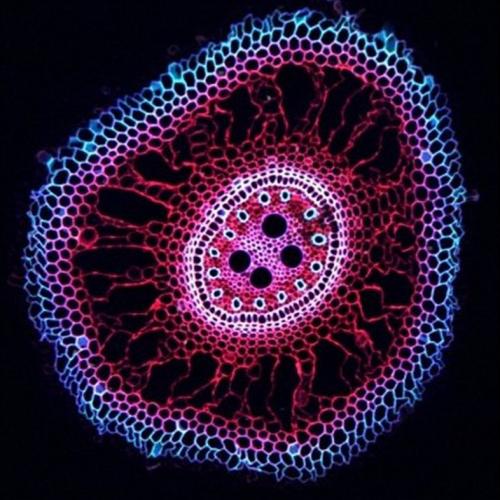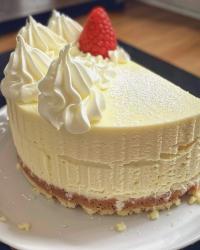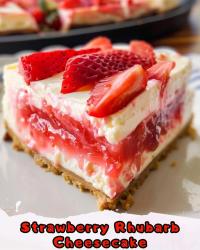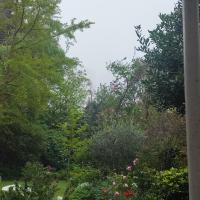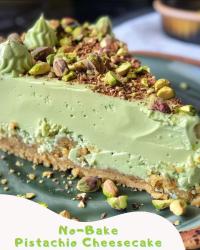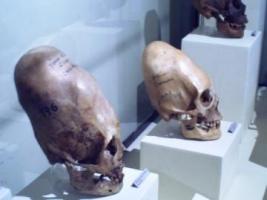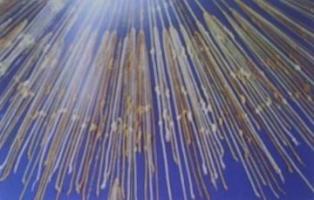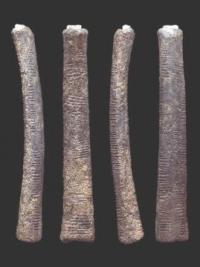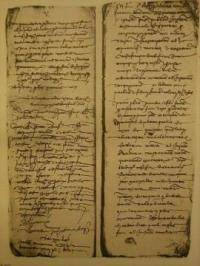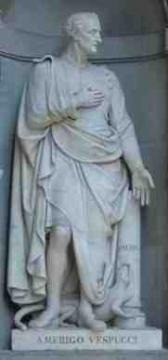Copy Link
Add to Bookmark
Report
Alife Digest Number 077

Alife Digest, Number 077
Saturday, May 30th 1992
~~~~~~~~~~~~~~~~~~~~~~~~~~~~~~~~~~~~~~~~~~~~~~~~~~~~~~~~~~~~~~~~~~~~~~~~~~~
~ Artificial Life Distribution List ~
~ ~
~ All submissions for distribution to: alife@cognet.ucla.edu ~
~ All list subscriber additions, deletions, or administrative details to: ~
~ alife-request@cognet.ucla.edu ~
~ All software, tech reports to Alife depository through ~
~ anonymous ftp at ftp.cognet.ucla.edu in ~ftp/pub/alife (128.97.50.19) ~
~ ~
~ List maintainers: Liane Gabora and Rob Collins ~
~ Artificial Life Research Group, UCLA ~
~ ~
~~~~~~~~~~~~~~~~~~~~~~~~~~~~~~~~~~~~~~~~~~~~~~~~~~~~~~~~~~~~~~~~~~~~~~~~~~~
Today's Topics:
Calendar of Alife-related Activities
Workshop on Combinations of GAs and Neural Nets
TR Available: "Organismic Darwinism"
Subject: Parallel Problem Solving from Nature Conference
DEVO: An Artificial Life Program
The Interpersonal Computing and Technology List (IPCT-L)
----------------------------------------------------------------------
Date: Sat, 30 May 92 16:51:46 -0700
From: liane@cs.ucla.edu (Liane Gabora)
Subject: Calendar of Alife-related Activities
**********************************************************************
CALENDAR OF ALIFE-RELATED ACTIVITIES:
Workshop on GAs and Neural Nets, Baltimore, MD June 6, 1992 v77
Artificial Life III, Santa Fe, NM June 15-19, 1992
Biocomputation Workshop, Monterey, CA June 22-24, 1992 v74
9th Intnl Machine Learning Conf, Aberdeen, Scotland July 1-3, 1992, v76
10th National Conference on AI, San Jose, CA Jul 12-17, 1992
14th Conf of the Cognitive Science Soc, Bloomington IN Jul 29-Aug 1, 1992
10th European Conference on AI Aug 3-7, 1992
13th International Congress on Cybernetics, Belgium Aug 24-28, 1992
Autopoiesis and Perception, Dublin, Ireland Aug 25-26, 1992 v76
Worshop on Neural Networks, Liverpool, England Sep 7-8, 1992 v74
Parallel Problem Solving from Nature, Brussels Sep 28-30, 1992 v77
State of the Art in Ecological Modelling, Kiel Germany Sep 28-Oct 2, 1992
Neural Processing Information Systems (NIPS), Denver Nov 28-Dec 3, 1992 v73
2nd International Conf on
Simulation of Adaptive Behavior, Honolulu, Hawaii Dec 7-11, 1992 v74
International Conference on System Sciences, Hawaii Jan 5-8, 1993 v74
AI and Simulation of Behaviour Conf, Birmingham UK Mar 29-Apr 2, 1993 v75
Intnl Workshop on Artifiical Neural Networks,
Barcelona Spain June 9-11, 1993 v76
(Send announcements of other activities to alife@cognet.ucla.edu)
**********************************************************************
------------------------------
Date: Wed, 20 May 92 07:39:32 EDT
From: ds1@philabs.philips.com (Dave Schaffer)
Subject: COGANN '92
COGANN-92
A Workshop on Combinations of
Genetic Algorithms and Neural Networks
June 6, 1992
Sheraton Inner Harbor Hotel
Baltimore, Maryland, USA
Sponsored by the IEEE Neural Networks Council
with the cooperation of the International Society for Genetic Algorithms
The day before the start of IJCNN-92, a one day workshop is
scheduled on Combinations Of Genetic Algorithms and Neural
Networks. Both of these computational paradigms are inspired by
information processing schemes used by nature, but they typically
have vastly different time constants. Recently, researchers have
begun experimenting with combining them into adaptive learning and
optimization systems with new capabilities. The goal of the
workshop is to bring together researchers to share concepts,
experience and recent research results. The IEEE Computer Society
Press will publish selected papers in a post-proceedings to appear
within a few months of the workshop.
The COGANN-92 Conference Committee
J. David Schaffer Philips Laboratories Conference Chair
Darrell Whitley Colorado State Univ. Program Chair
Gilbert Syswerda BBN Laboratories Finance Chair
Frank B. Weiskopf Johns Hopkins Univ. Publicity
Richard K. Belew Univ. of California at San Diego
Donald Brown Univ. of Virginia
Thomas P. Caudell Boeing Computer Services
Lawrence Davis Tica Associates
Russell Eberhart Research Triangle Inst.
Steven Harp Honeywell Inc.
Kendall Nygard North Dakota State Univ.
REGISTRATION
All participants must register (administration of this workshop is
independent of the administration of IJCNN-92). The registration
fees include a copy of the post-proceedings (except "Student: No
Proceedings" option) to be mailed to you when it is published.
Lunch is also included. Students are requested to supply proof of
student status along with their registration form. Those who paid
full registration to ICGA-91 are accorded ISGA membership. Hotel
reservations may be handled through the Housing Bureau IJCNN'92 or
directly with an area hotel.
COGANN-92
Preliminary Schedule
8:30 - 9:00 J.D. Schaffer
Genetic Algorithms and Neural Networks: The State of the
Art
9:00 - 9:30 D. Whitley
Genetic Algorithms and Neural Networks: Challenges and
Opportunities
9:40 - 10:10 J. Elias
Genetic Generation of Connection Patterns for a Dynamic
Artificial Neural Network
10:10 - 10:30 BREAK
10:30 - 10:55 F. Gruau
Genetic Synthesis of Boolean Neural Networks with a Cell
Rewriting Developmental Process
10:55 - 11:20 K. Lindgren, A. Nilsson, M. Nordahl and I. Rade
Regular Language Inference Using Evolving Neural
Networks
11:20 - 11:55 R. Eberhart
The Role of Genetic Algorithms in Neural Network
Explanation Facilities and Query-Based Learning
11:55 - 12:20 C. Schizas, C.Pattichis, R. Livesay and L. Middleton
Neural Networks, Genetic Algorithms and K-Means
Algorithm
12:20 - 1:30 LUNCH
1:30 - 3:00 Posters Session:
Approximately 12 poster will be presented. Authors will
be available to discuss their work.
3:00 - 4:00 Posters and Working Groups:
Individuals working in similar areas can discuss current
research results and identify promising future
directions.
4:00 - 5:30 Panel Discussion and Wrap-up
Working groups will summarize their conclusions.
Registration Form COGANN-92 June 6, 1992
Last Name____________________________First Name___________________Middle_____
Professional Affiliation:____________________________________________________
Mailing address:_____________________________________________________________
_____________________________________________________________________________
_____________________________________________________________________________
e-mail:______________________________telephone:___________________FAX:_______
IEEE membership number: _______________________ Did you attend ICGA-91? _____
Have you any dietary restrictions? __________________________________________
Do you wish to receive information on Baltimore area hotels? ________________
___IEEE/ISGA members (early) . . . .$75 ___ non-members (early) . . . . $85
___IEEE/ISGA members (after May 29).$85 ___ non-members (after May 29). $95
___Student with Proceedings. . . . .$65 ___ Student: No Proceedings . . $40
Make checks or money orders (US $ only) payable to COGANN-92 and send to:
Mr. Gilbert Syswerda, ISGA, 53 Lake Street, Winchester, MA 01890
------------------------------
Date: Mon, 25 May 1992 16:26 GMT
From: "Barry McMullin, DCU (Dublin, Ireland) <75008378@DCU.IE>"
Subject: TR Available: "Organismic Darwinism"
[The following announcment is being cross-posted on Alife Digest,
GA-List Digest, and POP+BIO. If you subscribe to more than one,
my apologies for the noise. All flames to me, not the list or
list maintainers! This TR is the second in a series of three. The
final one, dealing with Genic versus Organismic selection (which
is really the focus of the whole series), should be available
within another few weeks. Instructions for obtaining a copy are
at the end. Enjoy - Barry]
+++++++++++++++++++++++++
@TECHREPORT{
McMullin:Organismic,
AUTHOR = "Barry McMullin",
TITLE = "Essays on Darwinism. 2: Organismic Darwinism",
INSTITUTION = "School of Electronic Engineering, Dublin City University",
YEAR = "1992",
MONTH = Apr,
NUMBER = "{\tt bmcm9202}",
TYPE = "Technical Report",
ADDRESS = "Dublin 9, Ireland"
}
+++++++++++++++++++++++++
ABSTRACT:
---------
Essays on Darwinism
2: Organismic Darwinism
Barry McMullin,
School of Electronic Engineering,
Dublin City University,
Dublin 9,
IRELAND.
<McMullinB@DCU.IE>
April 1992
Technical Report: bmcm9202
{\em Artificial Life\/} is, by its nature, an interdisciplinary
research programme; it will involve biologists, of course, but
also philosophers, mathematicians, chemists, computer
scientists---and perhaps even (as in my case) engineers. Success
in our endeavours will require some of us, at least, to venture
into foreign territory. This essay is a log of my personal
expedition into evolutionary biology. I attempt to provide a
comprehensive review of Darwinism in the biological world, and to
do so as an {\em outsider\/}---a non-professional in the field.
My purpose is twofold. Firstly, I hope that real biologists may
take this opportunity to correct at least the worst of my errors.
Secondly, I offer this to other non-specialists as a sort of
map---a record of my particular exploration. I hope it might at
least provide some insight into the kinds of questions which need
to be asked, even if the particular answers suggested here are
less than satisfactory. Above all, I want to convince any who
may be in doubt that {\em Darwinism\/} encompasses a complex and
subtle system of interrelated theories, whose substantive
transplantation to any artificial medium will be very far from
easy.
This essay draws on abstract concepts introduced in a previous
essay [see .bib reference below]; the two essays are
therefore best read in conjunction.
+++++++++++++++++++++++
REFERENCES:
-----------
@TECHREPORT{
McMullin:DarwinianOntology,
AUTHOR = "Barry McMullin",
TITLE = "Essays on Darwinism. 1: Ontological Foundations",
INSTITUTION = "School of Electronic Engineering, Dublin City University",
YEAR = "1992",
MONTH = Mar,
NUMBER = "{\tt bmcm9201}",
TYPE = "Technical Report",
ADDRESS = "Dublin 9, Ireland"
}
+++++++++++++++++++++++
TO OBTAIN A COPY:
[I should warn that bmcm9202 is, relatively speaking, a biggie: it
runs to just under 50 printed pages...]
Copies are available in the following ways, in order of
(my) preference:
1: ftp the file <bmcm9202.ps.Z> from directory <pub/alife/papers>
on the Alife archive <ftp.cognet.ucla.edu>, uncompress it and
then print (or preview) it. This involves doing (something like) the
following:
unix> ftp ftp.cognet.ucla.edu
Connected to ftp.cognet.ucla.edu
Name (ftp.cognet.ucla.edu:): anonymous
331 Guest login ok, sent ident as password.
Password: [identification]
230 Guest login ok, access restrictions apply.
ftp> cd pub/alife/papers
ftp> binary
ftp> get bmcm9202.ps.Z
ftp> quit
unix> uncompress bmcm9202.ps.Z
unix> lpr -P(your_local_postscript_printer) bmcm9202.ps
[Many thanks to Alife maintainer, Rob Collins, for help above and
beyond the call of duty in making this possible. If you have any
problems, complain to me not Rob.]
2: I can email the file bmcm9202.ps.Z to you, on request
(uuencoded, split into 5 by about 55k chunks). You'll have to be
able to strip off the mail headers, cat the file back together,
uudecode, uncompress, and print postscript (or preview etc.).
3: Alternatively, I can email the file bmcm9202.dvi.Z to you, on
request (again, uuencoded, split into 4 by about 55k chunks).
You'll have to be able to strip off the mail headers, cat the
file back together, uudecode, uncompress, and then do whatever
you locally do to print or preview .dvi files. Apart from being
slightly smaller, and thus use less network bandwidth, this
option, if it suits you, is probably a bit more robust than the
.ps route, as it is much less dependent on the vagaries of your
local printer...
4: Or, I can email you the LaTeX sources. This has the advantage
of being plain ascii text, so I can send it without any encoding
etc.. You can then run it through LaTeX to get a properly
formatted version; or, if you don't have access to LaTeX, the
sources are readable as they stand (just about). The disadvantage
is that you need several different files, so it is a bit messy.
5: Finally, if that's all gobbledegook to you, then a limited number of
good old fashioned hard copies will be available. Send me your
full postal address. First come first served. However, note that
Dublin is currently suffering an industrial dispute in the postal
service, so I can't promise anything about when you might receive
a hard copy---so this really is a last ditch alternative.
In cases 1 and 2, if the .ps file fails to print fully (or at
all) please let me know, including any diagnostic info. you can
provide.
In cases 2--5 contact me as <McMullinB@DCU.IE> (do *not* send
requests to the whole list...).
+++++++++++++++++
Bye .... Barry.
------------------------------
Date: Mon, 25 May 92 19:28:42 +0200
From: bernard@arti1.vub.ac.be (Bernard Manderick)
Subject: Parallel Problem Solving from Nature Conference
PPSN92
PARALLEL PROBLEM SOLVING FROM NATURE CONFERENCE
ARTIFICIAL INTELLIGENCE LAB
FREE UNIVERSITY OF BRUSSELS
BELGIUM
28 - 30 SEPTEMBER 1992
General Information
===================
The second Parallel Problem Solving from Nature-conference (PPSN92) will be
held at the Free University of Brussels, September 28-30, 1992.
The unifying theme of the PPSN-conference is natural computation,
i.e. the design, the theoretical and empirical understanding, and the
comparison of algorithms gleaned from nature and their
application to real-world problems in science and technology.
Examples are genetic algorithms, evolution strategies, algorithms
based on neural networks and immune systems.
Since last year there is a collaboration with the International
Conference on Genetic Algorithms (ICGA) resulting in an alternation of both
conferences. The ICGA-conferences will be held in the US during the
odd years while the PPSN-conferences will be held in Europe during the
even years.
The major objective of this conference is to provide a biannual
international forum for scientists from all over the world where they
can discuss new theoretical, empirical and implementational
developments in natural computation in general and evolutionary
computation in particular together with their applications in science,
technology and administration.
The conference will feature invited speakers, technical and poster
sessions.
Registration Information
========================
REGISTRATION FEE
The registration fees for PPSN92 are as follows:
Before August 15: Normal 8 500 BEF Student 5 000 BEF
After August 15: Normal 10 500 BEF Student 7 000 BEF
These fees cover conference participation, conference proceedings, refreshment
breaks, lunches, wellcome reception and transport from the hotels
to the conference site and back. The deadline for registration is
August 15, 1992. After this date, an additional fee of 2000 BEF will be
charged. (1 US dollar is about 35 BEF and 1 ECU is about 42 BEF).
ACCOMMODATION
The conference will take place in the Aula (building Q) of the Free
University of Brussels (VUB), Pleinlaan 2, B-1050 Brussels.
There is no on-campus housing available. We have made arrangments with
a number of hotels. The following hotels have agreed to reserve rooms until
July 15, 1992 on a first come, first served basis. All hotels are
located in the center of the city. Transport from the hotels to the
conference site and back will be available. The indicated rates are in
belgian francs (BEF) and include breakfast.
NOTE THAT RESERVATIONS HAVE TO BE MADE BY THE ATTENDEES AND THIS
BEFORE JULY 15 IF THEY WANT TO BENEFIT FROM RESERVED ROOMS.
Hotel Albert I
Place Rogier 20
B-1210 Brussel
tel. +32/2/217 21 25
fax +32/2/217 93 31
Single: 3 000, double: 3 500, triple room: 4 000 (50 rooms)
Hotel Arcade
Place Sainte Catherine
B-1000 Brussel
tel. +32/2/513 76 20
fax +32/2/514 22 14
Single: 3 600, double: 3 600, triple room: 4 150 (50 rooms)
Hotel Arenberg
Rue d'Assaut 15
B-1000 Brussel
tel. +32/2/511 07 70
fax +32/2/514 19 76
Single: 4 500, double room: 5 100 (30 rooms)
Hotel Delta
Chaussee de Charleroi 17
B-1060 Brussel
tel. +32/2/539 01 60
fax +32/2/537 90 11
Single: 4 500, double room: 5 100 (50 rooms)
Hotel Ibis
Grasmarkt 100
B-1000 Brussel
tel. +32/2/514 40 40
fax +32/2/514 50 67
Single: 3 650, double room: 4 150, triple room: 5 150 (50 rooms)
Hotel Palace
Rue Gineste 3
B-1210 Brussel
tel. +32/2/217 79 94
fax +32/2/218 76 51
Single: 4 500, double room: 5 100 (80 rooms)
CONFERENCE BANQUET
The conference dinner will be held on the evening of Tuesday,
September 29 in one of the well-known restaurants in the famous Ilot
Sacre which is close to the Grande Place. The banquet costs 1 500 BEF
- see registration form. Places are limited and will be assigned on a
first come, first served basis.
ACCOMPANYING PERSONS PROGRAM
We did not foresee an accompanying persons program. All hotels will be
happy to inform you about all kind of attractions (shopping, tourism,
gastronomy, museums and the like) in Brussels. Most of these
attractions are in a walking distance from your hotel.
TRAVELING TO BRUSSELS
Brussels has three international railway stations. Brussels Central
("Brussel Centraal" in Dutch/"Gare Central" in French) lies in the
center of the city, Brussels South ("Brussel Zuid"/"Gare du Midi") and
Brussels North ("Brussel Noord"/"Gare du Nord") are less than 2 kilometers
to the south and to the north of the center, respectively.
The Brussels airport is located at 10 km from the center of the city
where most hotels are situated. There is a special train between the
airport and Brussels Central which runs at half hour intervals. It
also stops at Brussels North. All major airlines fly to Brussels.
PAYMENT
* Cheques (to be sent to PPSN92 Registrations). Please note that
all charges, if any, must be at the participants' expense.
Eurocheques are preferred.
* Bankers draft to the order of PPSN: ASLK-CGER Bank, Belgium:
Account 001-2361627-44 mentioning your name.
Please ask your bank to arrange the transfer at no cost of the
beneficiary. Bank charges, if any, will be at the participants
expense.
CANCELLATION
Refunds of 50% will be made if a written request is received before
September 15. No refunds will be made for cancellations received after
this date.
SPONSORS
The conference is sponsored by the Commission of the European Communities
- DG XIII- Esprit, Siemens-Nixdorf, Parsytec, the National Fund for
Scientific Research and the Research Council of the Free University of
Brussels.
REGISTRATION
Attached you will find the registration form. Completed registration
forms should be returned by mail, email or fax to:
PPSN92 Registrations
Artificial Intelligence Lab
VUB
Pleinlaan 2 Phone +32 2 641 35 75
B-1050 Brussels Fax +32 2 641 35 82
BELGIUM Email ppsn@arti.vub.ac.be
------------------------------------------------------------------------------
REGISTRATION FORM - CUT HERE
-----------------------------------------------------------------------------
PPSN92 REGISTRATION FORM
PERSONAL DETAILS
Name, First Name ___________________________________________
Address ___________________________________________
___________________________________________
Zip code ____________ City _______________________
Country ___________________________________________
Telephone No. ___________________________________________
Fax No. ___________________________________________
Email ___________________________________________
REGISTRATION FEE
Studnets requiring reduced fee must provide proof of status (such as
copy of student ID). Please tick the appropriate boxes below.
----
Normal Registration 8 500 BEF | |
----
----
Student Registration 5 000 BEF | |
----
----
Late Fee (after August 15) 2 000 BEF | |
----
Registration Total -----------
(BEF): | |
-----------
LUNCHES
----
Vegetarian | |
----
CONFERENCE DINNER
Yes - I wish to attend the PPSN92 Conference Dinner ----
(1 500 BEF) | |
----
Nr. of Additional tickets (Nr. * 1 500 BEF) | |
----
Dinner Total -----------
(BEF): | |
-----------
FINAL TOTAL -----------
(BEF): | |
-----------
------------------------------
Date: Tue, 26 May 92 13:56:08 EDT
From: Richard Clark <richard@TIS.COM>
Subject: Another Artificial Life Program
Re: Artificial Life Programs
After perusing through the Tierra documentation, I find that the
artificial life system I wrote at home performs many of the same functions,
but in real-time with a colorful and much more extensive operator interface.
DEVO is a program written under DOS, for a VGA color monitor. It
consists of a number of cell types, each with its own set of behaviour
characteristics and functionality, which group together to form various
organisms. These organisms vie for artificial energy in an ongoing life
and death struggle. Once a particular level of energy is reached, the
organism may reproduce.
DEVO functionality includes:
1. The ability to alter running parameters on the fly.
2. The ability to partition the life space.
3. The ability to examine, modify, and kill organisms.
4. A viewing window to move around through the virtual life space.
5. The ability to save and restore running life-cycles.
6. Runs in real-time with a rather interesting organism display.
DEVO was written for fun in my spare time at home. If there is any
interest, I may be persuaded to continue its development. Additionaly, if
there is any interest in the source code, please let me know. It's not a
piece of software to stop the world, but I think it's a good start in one of
the many directions.
Required hardware: AT under DOS. 640KB RAM. Color VGA monitor.
If only I had the time to combine this with my neural net project...
Or to create a general-purpose cell type which mutates during reproduction
occaisionaly... Or who knows...
Just to pique your interest a little more:
A few more bits and pieces of info on the DEVO program...
The cell types currently defined:
1. Energy - unit of life.
2. Motion - adds momentum to the structure in the direction
from which the energy was aquired.
3. shield - protects against energy transfers from:
4. attack - steals energy from cells of foreign organism.
5. fat - stores energy for later use.
6. reproduction - causes organism reproduction when filled.
Cells all have a different number of possible links with which to
stick together to form an organism. For instance, a reproduction cell
will establish up to
four links with other cells. Two cells may link together if first, they
occupy the same virtual space grid point, and second they both have a link
available. When cells link, the total energy of the two organisms is averaged
and becomes the new total energy of the new organism.
The upper left corner of the life space is where energy is disseminated
in random direction and velocity. Thus very little energy ever makes it to the
furthest point in the life space (the lower right corner).
The user may build barrier walls to alter the form and shape of the
life space. One such use is to capture an organism near the energy source
to force its reproduction.
Two types of wall blocks are defined:
1. bounce - cells bounce off back in the direction they came.
2. death - causes instant death of entire organism.
Organisms continually lose energy and velocity. Energy is continually
pumped into the system. Velocity is created via the motion cells.
When an organism's energy level hits zero. It is killed. All the
links between its cells are broken, they are given random small amounts
of energy, and random directions and velocity. The organism literally
explodes. (Fun to watch!)
Inactive cells are kept on a free list. When the free list gets
below a certain level, killed cells are placed here. When an organism
wishes to reproduce, the new cells it needs are taken from here.
The devo program provides a viewing window into a virtual life space,
the life space being much larger than the screen. The user may move
this viewing window around in the life space while the program is running
to see what is going on in different areas.
The virtual life space is composed of a two dimensional array of
grid points. Each grid point represents an 8*16 patch of real spatial points.
Cells within the same grid point are kept in a linked list for that grid
point. When a cell moves enough to change grid points, it is relinked into
the appropriate new grid point linked list. This enables
extremely fast neighbor checking. I.E: I don't have to search through the
entire set of cells to find who is next to whom for interactions, I already
know who the neighbors are.
A status screen is provided to track number of births, deaths,
number of cells on the free queue...
A screen is provided to alter a number of the running parameters,
such as the amount of energy in an energy cell, the maximum size of an
organism, how fast to remove velocity from the system...
A file save/restore screen is provided so that a life space may
be saved and restored.
A single-step or free-running option is available.
A cursor is provided so that one may view the contents of any cell.
DEVO runs in real-time, in graphics mode on the VGA. And since the
life space is always changing, and there is no disk access while the
program is running, if nothing else it makes for an interesting screen
saver. :)
There are many more things I'd like to add. But theres that nagging
little problem of finding the time... :(
Richard H. Clark
rclark@tis.com
------------------------------
Date: Tue, 26 May 1992 22:52 EDT
From: "Zane Berge, Ph.D." <BERGE@guvax.georgetown.edu>
Subject: The Interpersonal Computing and Technology List (IPCT-L)
IPCT-L on LISTSERV@GUVM
or LISTSERV@GUVM.GEORGETOWN.EDU
The Interpersonal Computing and Technology List (IPCT-L) was
created February 1992 by the Center for Teaching and Technology (CTT)
at the Academic Computer Center, Georgetown University. A special
effort will be made to promote an international forum for
pedagogical issues important to higher education involving
teaching with technology, and especially with connectivity and
networking.
A goal is to create a forum for the discussion of computing and
other technology that can be used to promote learning. Topics for
discussion may involve teaching and training; collaboration;
partnerships among learners, faculty or teachers, and other
interested persons in the educational community; and research that
reflect these interests. The decade of the 1980s was characterized
by the _personal_ computer, and development of individual product-
ivity. The focus of the IPCT-L, as we move toward the 21st century,
is that _interpersonal_ computing and technology will tie persons
together throughout the world -- to share ideas and solve problems.
Besides creating a forum for the topics of interest noted above,
another interest of the CTT is to publish a scholarly, refereed
international journal. To that end, the IPCT-L will develop a
subscription list and act as a resource to develop the community
necessary to review articles and recommend editorial policies as
these publishing goals move forward.
To subscribe send the following in an interactive command (TELL or
SEND) or in the BODY of mail (NOT the Subject:) to LISTSERV@GUVM
on Bitnet or LISTSERV@GUVM.GEORGETOWN.EDU on Internet:
SUBSCRIBE IPCT-L yourfirstname yourlastname
Example:
SUBSCRIBE IPCT-L Mary Doe
Owner: Zane Berge <BERGE@GUVAX.BITNET> or
<BERGE@GUVAX.GEORGETOWN.EDU>
------------------------------
Date: Wed, 27 May 92 11:14:25 EDT
From: Richard Clark <richard@TIS.COM>
Subject: More DEVO info
------------------------------
Date: Wed, 27 May 92 14:42:13 -0700
From: rsjuds@snll-arpagw.llnl.gov (judson richard s)
************************************
NOTE DEADLINE CHANGE !!!!
NEW POSTER DEADLINE: JUNE 12
************************************
BIOCOMPUTATION WORKSHOP
Evolution as a computational process
June 22-24, 1992
Doubletree Hotel
2 Portola Plaza
Monterey, Ca 93940
Sponsored by the Institute for Scientific Computing Research at LLNL and
the Center for Computational Engineering at SNL
This workshop brings together biologists, physicists and computer
scientists with interests in the study of evolution. The premisis
of the workshop is that natural evolution is computational process
of adaption to an ever changing environment. Mathematical theory and
computer modeling are therefore ideally suited to study evolution
and conversely, evolution may be used as a model system to study the
computational processes of optimization and emergent pattern formation.
Fifteen invited speakers will provide general reviews and summaries of their
recent research. Although oral presentations will be limited to the invited
speakers, original research contributions are solicited for poster sessions
in the following areas:
natural evolution
artificial life
genetic algorithms and optimization
List of speakers:
----------------
Stuart Kauffman --- University of Pensylvania, Santa Fe Institute
Alan Templeton* --- Washington University, St. Louis
Daniel Hillis --- Thinking Machines Inc.
Richard Hudson* --- University of California, Irvine
Steven Frank --- University of California, Irvine
Alan Hastings --- University of California, Davis
Warren Ewens* --- Melbourne University and University of Philadelphia
Marcus Feldman --- Stanford University
Lee Altenberg* --- Duke University
Aviv Bergman --- SRI and Stanford University
Mark Bedau --- Reed College
Gary Beluzo --- Holyoke Community College
Heinz Muehlenbein --- University of Bonn
(* invited, not confirmed)
Instructions for Submissions and registration:
--------------------------------------------
Authors should submit a single-page abstract clearly stating their results
by June 12, 1992, to the Meeting Coordinator at the address listed below.
Please indicate which of the above categories best applies to your paper.
There will be no parallel sessions, and the workshop will be structured to
stimulate and facilitate the active involvement of all attendees.
There will be sessions on the first 2 days from 9:00 AM till 5:00 PM with
1-2 hrs lunch breaks. On the third day there will be a morning session
and a short afternoon session only (maybe one talk until 3:00 PM).
Registration fees are $100 for full-time Ph.D. students and $250 for all
others. Fees include admission to a banquet, at the Monterey aquarium,
to be held on Monday night. (There is a $50 discount for students presenting
posters at the meeting.)
To obtain registration materials and housing
information, please contact the Meeting Coordinator.
For information only please contact eeckman@mozart.llnl.gov
Electronic abstract submissions only at jb@s1.gov
Meeting coordinator:
-------------------
Chris Ghinazzi
P.O. Box 808, L-426
Lawrence Livermore Laboratory
Livermore, CA 94550
phone: (510) 422-7132
email: ghinazzi@verdi.llnl.gov
-----------------------------------------------------------------------
Please complete this form and return it to: Evolution as a Computational
Process, c/o Chris Ghinazzi, Lawrence Livermore National Laboratory,
P.O. Box 808, L-426, Livermore, CA 94550-9900. Phone (510)422-7132 or
FAX: (510)422-7819
REGISTRATION FORM
Name:
Title:
Organization:
Address:
City:
State:
Zip:
Country:
Citizenship:
Telephone:
email address:
Registration Fees:
Regular $250
Student $100
Student w/poster $50
Are you submitting a poster? yes no
Total Payment Enclosed $________
Check or Money Order (payable in US dollars to UC Regents)
Requests for refunds must be received in writing no later than June 1, 1992.
Attendance is on a first-pay, first-serve basis.
------------------------------
End of ALife Digest
*******************








